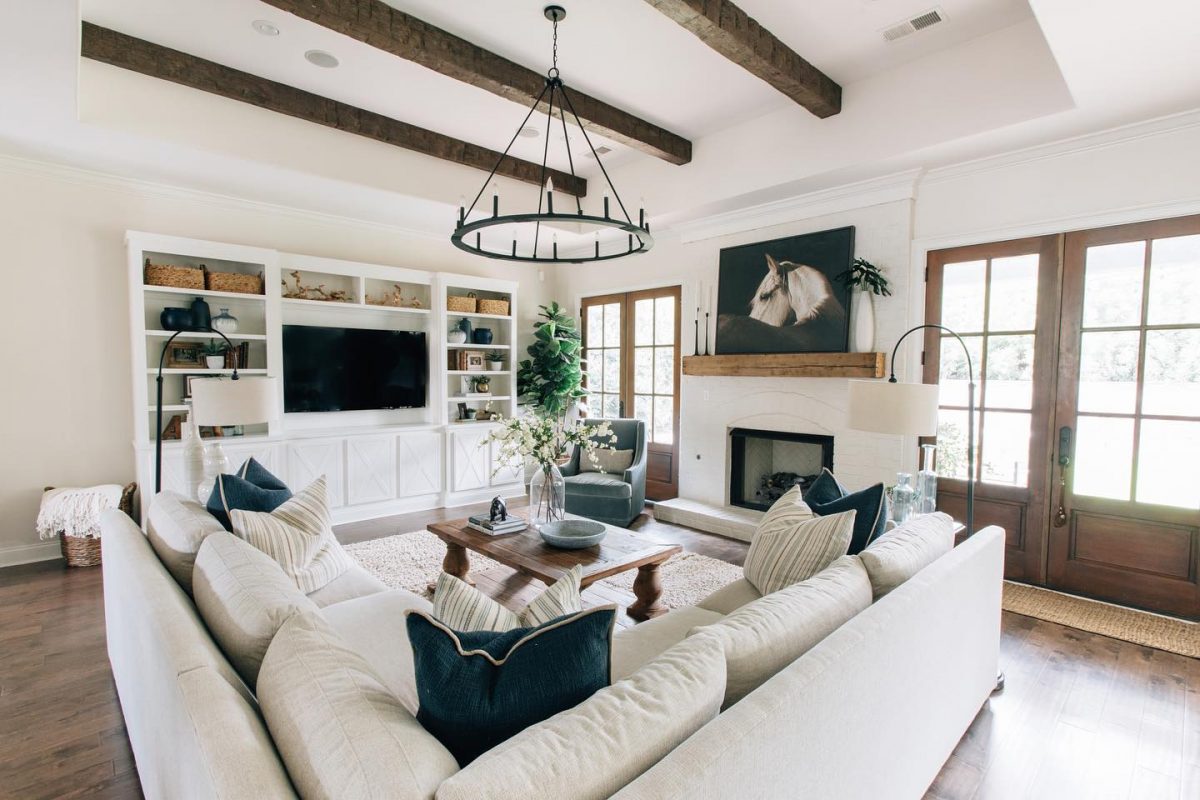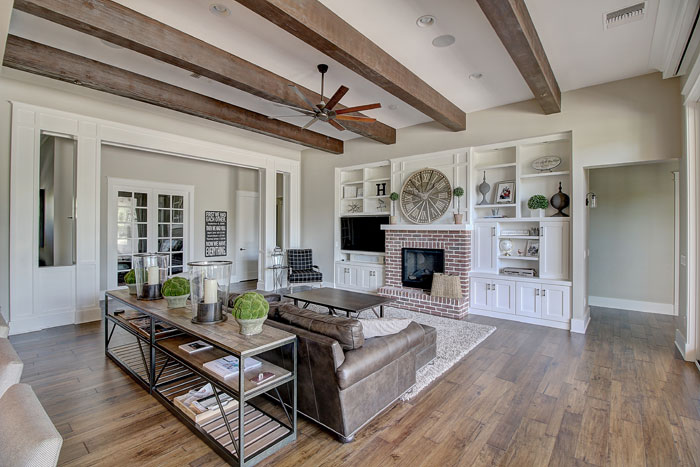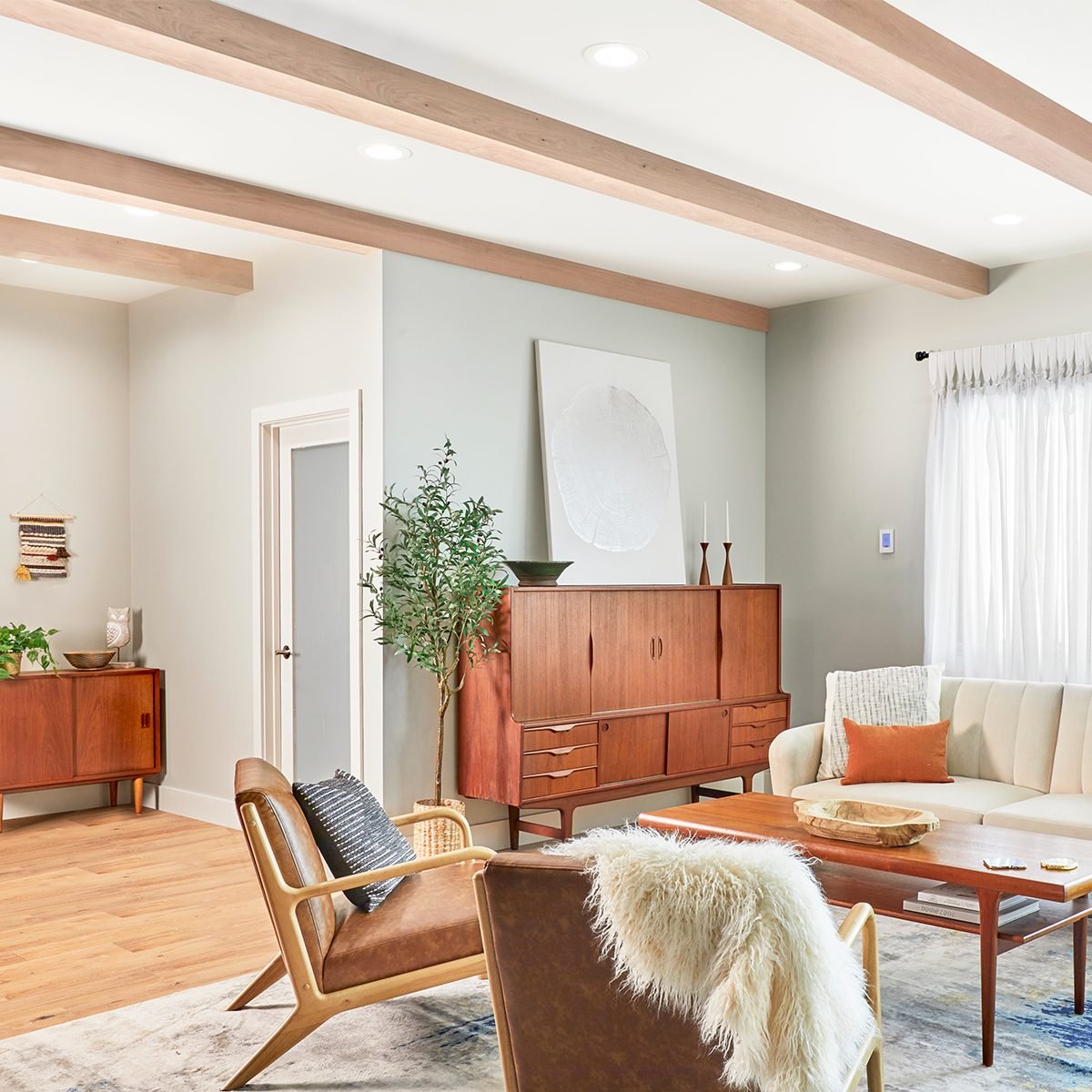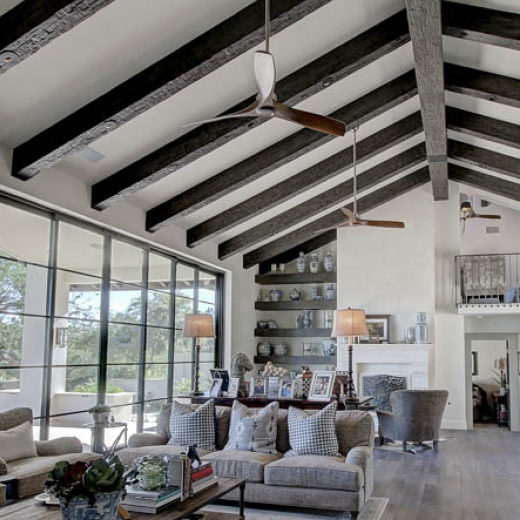When it comes to home decor, the ceiling is often overlooked. However, incorporating decorative beams can completely transform the aesthetic of a room, adding character, warmth, and a unique flair. Having installed decorative beams in my own home, I can attest to their ability to change the atmosphere of a space dramatically. In this comprehensive guide, we will explore everything you need to know about decorative beams for ceilings, from types and installation to maintenance tips and design ideas.
What Are Decorative Beams?
Decorative beams are architectural features that can enhance the visual appeal of a ceiling. They can be made from various materials, including wood, faux wood, and even metal. Unlike structural beams, these decorative elements serve primarily an aesthetic purpose, creating a rustic, elegant, or modern look depending on the style you choose.
The History of Decorative Beams
Decorative beams have been used for centuries in various architectural styles. From the charming, rustic huts of the countryside to the grand designs of historic estates, these beams have always found a place in home design.

Types of Decorative Beams
There are a variety of decorative beams available, each offering different styles and benefits.

1. Wooden Beams
Wooden decorative beams are perhaps the most traditional choice. They can range from distressed finishes that evoke a rustic vibe to sleek, polished finishes for a more modern look.
Pros
- Classic appeal
- Versatile in style
- Excellent insulation properties

Cons
- More expensive than synthetic alternatives
- Can warp or crack over time
2. Faux Wood Beams
Faux wood beams are made from engineered materials designed to mimic the look of real wood. They are lighter and usually come at a lower cost.

Pros
- Cost-effective
- Easy to install
- Resistant to warping and cracking
Cons
- Less authentic appearance
- May not be as durable as real wood

3. Metal Beams
For a more contemporary aesthetic, metal beams can be a stunning choice. They add an industrial feel and can be painted or left in their natural finish for a sleek look.
Pros
- Durable and long-lasting
- Low maintenance
- Perfect for modern designs

Cons
- Can be cold and uninviting
- Requires skilled installation
Choosing the Right Decorative Beams for Your Ceiling

When selecting decorative beams, consider the overall style of your home, the ceiling height, and the room’s purpose. Here are some tips to help you choose the right beams:
1. Consider the Room Style
Your decorative beams should complement the room’s design. For instance, a rustic living room may benefit from rustic wooden beams, while a modern kitchen might look great with sleek metal beams.
2. Think About the Ceiling Height
High ceilings can handle larger, more dramatic beams, while lower ceilings may require slimmer profiles to avoid overwhelming the space.
3. Factor in Lighting
Consider how beams will interact with your lighting fixtures. Beams can create shadows and highlights that can enhance the overall ambiance when positioned strategically.
Installation of Decorative Beams
Installing decorative beams can be a DIY project or a professional job, depending on your skills and the complexity of the installation. Here’s a breakdown of both approaches.
DIY Installation
If you’re considering a DIY installation, here are some steps to follow:
- Measure the ceiling space.
- Choose your beam layout – parallel, grid, or angled.
- Purchase beams and necessary hardware.
- Use a stud finder to locate ceiling joists.
- Attach the beams securely, ensuring they are level.
Professional Installation
If you opt for professional installation, you’ll save time and ensure that the job is done correctly. A professional can advise on the best layout and types of beams for your space.
Maintenance of Decorative Beams
To keep your decorative beams looking their best, regular maintenance is key. Here are some helpful tips:
1. Dust Regularly
Use a soft cloth or duster to remove dust and cobwebs.
2. Inspect for Damage
Check for signs of wear and tear, especially in wood beams, which can be prone to termites or rot.
3. Refinish as Needed
For wooden beams, consider refinishing every few years to maintain their beauty.
Decorative Beam Design Ideas
Need some inspiration? Here are a few design ideas that can incorporate decorative beams into your home.
1. Rustic Farmhouse Style
Pair wide, distressed wood beams with shiplap walls and cozy furnishings for a charming farmhouse look.
2. Modern Minimalism
Utilize narrow, sleek beams in a white or grey finish to create a clean and sophisticated aesthetic.
3. Industrial Chic
Combine metal beams with exposed brick walls and vintage lighting fixtures for an industrial vibe.
Comparison Table: Decorative Beam Types
| Type | Material | Cost | Maintenance | Style |
|---|---|---|---|---|
| Wooden Beams | Solid wood | High | Moderate | Traditional |
| Faux Wood Beams | Engineered materials | Low | Low | Versatile |
| Metal Beams | Steel or aluminum | Moderate | Very low | Contemporary |
FAQs About Decorative Beams for Ceilings
1. Are decorative beams difficult to install?
While installation can be manageable for DIY enthusiasts, it’s recommended to hire a professional if you’re unsure.
2. Can I use decorative beams in a small room?
Yes, slim beams can add character to small rooms without overwhelming them. Opt for lighter colors to create an airy feel.
3. How do I choose the right size beams?
Consider your ceiling height and the overall scale of the room. Larger beams work well in spacious areas, while smaller beams suit cozy environments.
4. What is the cost of decorative beams?
The cost can vary widely based on material and installation. Expect to pay anywhere from $10 to $30 per linear foot for materials, plus labor if hiring a professional.
5. How do I maintain my decorative beams?
Regular dusting, inspecting for damage, and periodic refinishing for wooden beams will keep them looking great.
Conclusion
Decorative beams for ceilings are an elegant way to enhance the architecture of your home while adding warmth and character. Whether you choose wooden, faux wood, or metal beams, the possibilities for design and style are endless. After applying what you’ve learned in this guide, you’ll be well on your way to creating a stunning ceiling that reflects your style and personality. Don’t hesitate to explore different looks and materials, and most importantly, enjoy the process of beautifying your home!